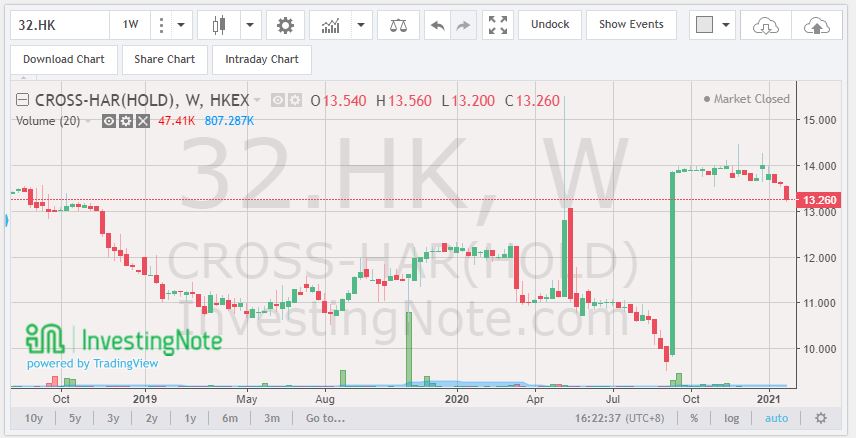Hong Kong Tracker Fund: 4.32%
Straits Times Index Fund: 1.62%
SPDR S&P 500 Index: -0.58%
My little portfolio: 1.68%
Transactions:
Increase in Emporer Entertainment Hotel due to lower prices
Comments:
The most talked-about topic in the investosphere is the short squeeze of heavily shorted stocks, particularly Gamestop and AMC.
Quite often I come across the term “Burn the shortists!” in investing forums, particularly Investing Note. Some of them actually think that stock prices goes down primarily due to short-sellers..I think the anger towards shorting companies are misplaced. Have these people actually pause and consider if the stock they bought were actually overvalued?
A substantial decrease in stock prices does not always mean that short sellers are responsible. A stock price has to be worth a certain amount, long term. The market could be right or wrong momentarily, but long term, they would always get it right.
Some depicted the situation as sweet justice-- retail guys getting back on institutions—but how can they be so certain that other institutions are not taking opportunity in betting with them as well?
Eventually, there would be casualties on both ends when sanity resumes.
The only detail that piqued me is how certain brokerages could be allowed to suspend trades, allegedly because they have backers with an vested interest in GameStop, possibly in short positions.
The squeeze effect is nothing new. In recent years, Softbank was also accused of having bought tons of call options, artificially bringing up the prices of the many tech stocks late last year.
For the reddit stock, the effect is stronger because the stock is heavily shorted. Buying of call options would force the brokerages or some authority to purchase stock. A call option gives the buyer the right to buy the underlying, they would realistically need to have the underlying should the option holder wishes to convert. This further limiting supply for these short sellers to cover.
I would guess that this situation should be brought to a stalemate by a dramatic reduction in short interest across the board.
I respect the short sellers-- they usually done tremendous amount of research before hand, and have more than just skin in the game (as some of the bankrupted short seller would attest). They are the most fundamentally sound investors around.
Volatility in the Hang Seng Index
Even though HSI returns a very respectable 4.3% year-to-date, it was as high as 9.5% at the start of this final week. So we were looking at a drop of 5% in as many days...
The charts do not look very great either for the America and Singapore indices. But there were serious amount of volatility, not as much as Hong Kong. Quite a few stocks like IGG and Nexteer were having double digit percentage moves.
However, such volatility does not extend towards my holdings, and as such there were no opportunity.
Interesting Insider Disclosure
The directors of Perfect Shape Medical are very optimistic indeed.
The CFO/Secretary So Hin Lung purchased a total of 140,000 shares, whereas the executive chairman bought 1,644,000. The total transaction value is about 75,000 SGD and 800,000 SGD respectively, which is decent amount of money for a company with 4B HKD market cap (685m SGD).
Personally, I feel that the market price for Perfect Shape is not on the low side, although I would clarify that I am usually overly conservative.
Here are some very simple mathematical figures:
The entire market cap is priced at 3.8B HKD.
There is about 850m in cash, which means you are paying for 3B for the company. There isn't much liabilities in its BS.
Free cash flow has been increasing at an insane CAGR of 16.6% since 2011, net income, 25.58%. as of 2020 first half, it has already earn 341m in cash flow,. Given that sign up during the 11.11 sale was promising ,I think the free cash flow should at least equal 450m of last year's, and that means you are paying for only about 6.6 times for the entire company.
Of course, the price has gone up a good 60% since my last purchase, and it is easy for me to feel bright and cheery. So I would conservatively say that the odds are good that you are not paying a lot for growth here.
Perfect Shape is about 20% of my entire holdings.
See you next month.








